Africa Land Grab
Recent articles and Reports on African land grab

Ugandan farmers take on palm oil giants over land grab claims
Guardian| 3 March 2015
By Alon Mwesigwa in Kalangala
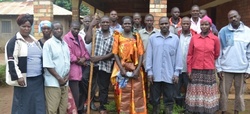 Some of the farmers evicted from their land in Kalangala, Uganda, to make way for palm oil plantations. Photo: Alon Mwesigwa
Some of the farmers evicted from their land in Kalangala, Uganda, to make way for palm oil plantations. Photo: Alon Mwesigwa
By Alon Mwesigwa in Kalangala
 Some of the farmers evicted from their land in Kalangala, Uganda, to make way for palm oil plantations. Photo: Alon Mwesigwa
Some of the farmers evicted from their land in Kalangala, Uganda, to make way for palm oil plantations. Photo: Alon Mwesigwa
Before the bulldozers came, Magdalena Nakamya harvested coffee, cassava,
avocado and jackfruit on her three-hectare (seven-acre) plot on
Kalangala, an island in Lake Victoria. But on a July morning in 2011,
Nakamya, 64, awoke to find yellow machines churning up her land and
razing the crops she had grown in a bid to make way for palm oil
plantations. “No one came to talk to me before they destroyed my
crops,” says Nakamya. “I heard that some people were given money, but I
didn’t receive anything.” – See more at: http://farmlandgrab.org/post/view/24606-ugandan-farmers-take-on-palm-oil-giants-over-land-grab-claims#sthash.754TJZ6T.dpuf
Stop #landrights fraud!
Oakland Institute| 3 March 2015
Every spring for the last fifteen years, the World Bank has organized the “Conference on Land and Poverty,” that brings together corporations, governments and civil society groups.
While the 16th conference is set to take place in Washington D.C. from March 23 to 27, hundreds of civil society organizations are denouncing the World Bank’s role in global land grabs and its deceitful leadership on land issues. The Our Land Our Business campaign has been critical of the World Bank’s Doing Business report and accompanying advisory services. Through these, the Bank uses its financial and political might to force countries to adopt “business-friendly” reforms, which create conditions that make it as easy as possible for agribusiness corporations to get access to developing countries’ land and natural resources.
We therefore call on all stakeholders to reject the Bank’s sham Conference on Land and Poverty and denounce its attempt to influence land governance for the benefits of a few. Our Land Our Business is a multi-continental campaign gathering over 260 NGOs, farmer groups, indigenous organizations, and unions. It demands the end of the World Bank’s harmful Doing Business and Enabling the Business of Agriculture projects.
– See more at: http://farmlandgrab.org/post/view/24605-stop-landrights-fraud#sthash.QuamIbox.dpuf
Every spring for the last fifteen years, the World Bank has organized the “Conference on Land and Poverty,” that brings together corporations, governments and civil society groups.
While the 16th conference is set to take place in Washington D.C. from March 23 to 27, hundreds of civil society organizations are denouncing the World Bank’s role in global land grabs and its deceitful leadership on land issues. The Our Land Our Business campaign has been critical of the World Bank’s Doing Business report and accompanying advisory services. Through these, the Bank uses its financial and political might to force countries to adopt “business-friendly” reforms, which create conditions that make it as easy as possible for agribusiness corporations to get access to developing countries’ land and natural resources.
We therefore call on all stakeholders to reject the Bank’s sham Conference on Land and Poverty and denounce its attempt to influence land governance for the benefits of a few. Our Land Our Business is a multi-continental campaign gathering over 260 NGOs, farmer groups, indigenous organizations, and unions. It demands the end of the World Bank’s harmful Doing Business and Enabling the Business of Agriculture projects.
– See more at: http://farmlandgrab.org/post/view/24605-stop-landrights-fraud#sthash.QuamIbox.dpuf
Africa to be the next frontier for oil palm
The Hindu| 3 March 2015
By G Chandra Shekhar
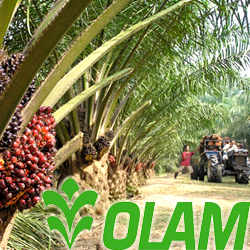 Africa
may well be the next frontier for palm as the continent presents
excellent opportunities, according to Mr. Sunny Verghese, chief
executive officer of Olam International Ltd.
Africa
may well be the next frontier for palm as the continent presents
excellent opportunities, according to Mr. Sunny Verghese, chief
executive officer of Olam International Ltd.
Despite many challenges such as infrastructure and logistics,
He was addressing a large gathering of the global vegetable oil industry and trade here at the Palm Oil Price Outlook 2015 conference organized by Bursa Malaysia.
Africa has suitable agro-climatic conditions for oil palm and natural rubber plantations with more contiguous land available while labour availability is adequate, Mr. Verghese pointed out. However, ambiguities in land related investment policies, highly expensive logistics and infrastructure as also low labour productivity are challenges to be overcome, he added.
– See more at: http://farmlandgrab.org/post/view/24608-africa-to-be-the-next-frontier-for-oil-palm#sthash.PD9Ild4G.dpuf
By G Chandra Shekhar
 Africa
may well be the next frontier for palm as the continent presents
excellent opportunities, according to Mr. Sunny Verghese, chief
executive officer of Olam International Ltd.
Africa
may well be the next frontier for palm as the continent presents
excellent opportunities, according to Mr. Sunny Verghese, chief
executive officer of Olam International Ltd.Despite many challenges such as infrastructure and logistics,
He was addressing a large gathering of the global vegetable oil industry and trade here at the Palm Oil Price Outlook 2015 conference organized by Bursa Malaysia.
Africa has suitable agro-climatic conditions for oil palm and natural rubber plantations with more contiguous land available while labour availability is adequate, Mr. Verghese pointed out. However, ambiguities in land related investment policies, highly expensive logistics and infrastructure as also low labour productivity are challenges to be overcome, he added.
– See more at: http://farmlandgrab.org/post/view/24608-africa-to-be-the-next-frontier-for-oil-palm#sthash.PD9Ild4G.dpuf
Militarization and alternative biofuel drives Ethiopian land-grab
Digital Journal| 3 March 2015
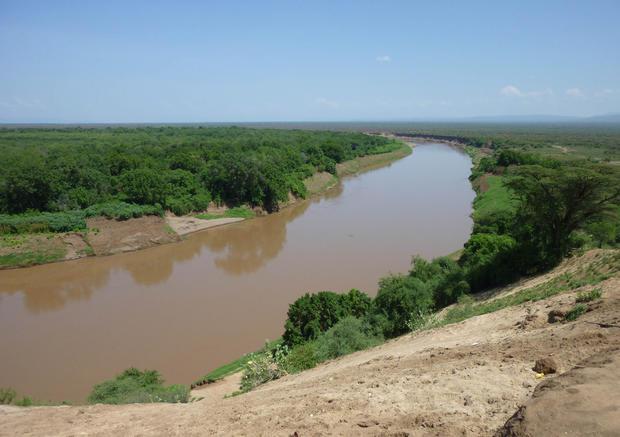 Omo River and surrounding fertile seasonal floodlands as seen from Karo village of Doose, Ethiopia. Photo: Bernard Gagnon
Omo River and surrounding fertile seasonal floodlands as seen from Karo village of Doose, Ethiopia. Photo: Bernard Gagnon
By Karen Hardison
Ethiopia buys military weapons and claims advance on Millennium Goal objectives while India and others gain large scale alternative biofuel crops and claim advance on reduction of fossil fuel dependency. Ethiopia promises to meet its Millennium Goal objectives of creating a middle class and providing education and health care for its indigenous tribes. India promises to reduce its green house gas emissions from and dependency upon fossil fuels through production of alternative biofuels. Both Ethiopia and India find that leasing or buying large tracts of “fertile basket” land, land traditionally used for herding and small scale shifting cultivation (shifting between small plots that are cultivated then left to revert to nature), facilitates the accomplishment of their promises.
These ofttimes secret land deals, with hidden terms and conditions, that transfer vast sections of land to foreign governments, private investors and land hedge funds, are called land grabs. The inherent problems in this approach to fulfilling millennial and ecological promises produce effects upon local indigenous people, land ecosystems, hydro-ecosystems and upon the long-term outlook for productive modernization, agro-industrialization, food and fuel security.
Who’s Involved and Why
– See more at: http://farmlandgrab.org/post/view/24607-militarisation-and-alternative-biofuel-drives-ethiopian-land-grab#sthash.MhQVEBmU.dpuf
 Omo River and surrounding fertile seasonal floodlands as seen from Karo village of Doose, Ethiopia. Photo: Bernard Gagnon
Omo River and surrounding fertile seasonal floodlands as seen from Karo village of Doose, Ethiopia. Photo: Bernard GagnonBy Karen Hardison
Ethiopia buys military weapons and claims advance on Millennium Goal objectives while India and others gain large scale alternative biofuel crops and claim advance on reduction of fossil fuel dependency. Ethiopia promises to meet its Millennium Goal objectives of creating a middle class and providing education and health care for its indigenous tribes. India promises to reduce its green house gas emissions from and dependency upon fossil fuels through production of alternative biofuels. Both Ethiopia and India find that leasing or buying large tracts of “fertile basket” land, land traditionally used for herding and small scale shifting cultivation (shifting between small plots that are cultivated then left to revert to nature), facilitates the accomplishment of their promises.
These ofttimes secret land deals, with hidden terms and conditions, that transfer vast sections of land to foreign governments, private investors and land hedge funds, are called land grabs. The inherent problems in this approach to fulfilling millennial and ecological promises produce effects upon local indigenous people, land ecosystems, hydro-ecosystems and upon the long-term outlook for productive modernization, agro-industrialization, food and fuel security.
Who’s Involved and Why
– See more at: http://farmlandgrab.org/post/view/24607-militarisation-and-alternative-biofuel-drives-ethiopian-land-grab#sthash.MhQVEBmU.dpuf
Meet The Millionaires And Billionaires Suddenly Buying Tons Of Land In Africa
 Count Miguel Pais do Amaral, an amateur race car driver
Count Miguel Pais do Amaral, an amateur race car driverOakland Institute just completed the most thorough investigative report on who’s buying land in Africa we’ve seen yet: “Hedge Funds Grabbing Land in Africa,” as BBC called it. As commodities prices rise and inflation picks up, the OI made the report public, they say, because the number of investors buying up land in Africa concerns them. For obvious reasons, there isn’t much out there about who’s buying what and how much in Africa. But what OI has discovered is a small number of investors paying sometimes nothing for large plots of land in some African countries.
The lease deals are arranged between seemingly corrupt African leaders, reportedly without disclosing the details to the members of the communities that will be displaced because of the land development, and investors such as hedge fund managers. The end result — beating villagers, digging up their cemeteries, and taking over land that villagers have lived on for centuries — looks a lot like a less cruel version of what history tells us colonizing Americans did when they ousted the Indians, according to this one report anyway….
Read more : http://www.businessinsider.com/meet-the-millionaires-and-billionaires-buying-land-in-africa-2011-6?op=1#ixzz3SUgpbEt3
Colonial plantations are making a comeback in Mozambique
UNAC | GRAIN
Media release 19 February 2015
For immediate release
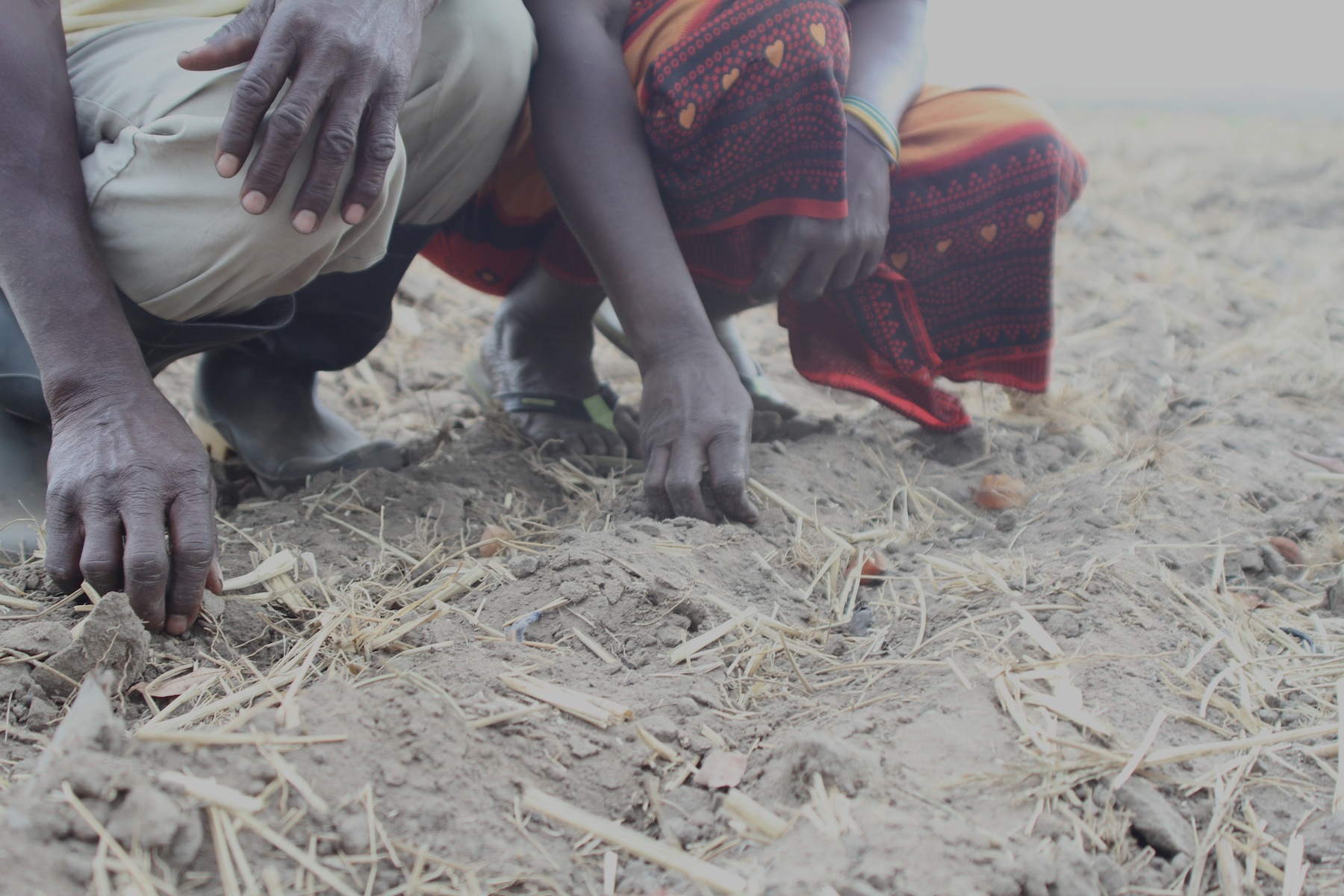
There is a colonial-style scramble for Africa’s farm lands, and Mozambique’s peasants are on the front lines. A new survey of land deals in Mozambique shows that since 2006 there have been at least 35 land deals with foreign investors for the production of food crops, covering more than half a million ha. – See more at: http://farmlandgrab.org/post/view/24542-colonial-plantations-are-making-a-comeback-in-mozambique#sthash.TdeNjatF.dpuf
Media release 19 February 2015
For immediate release

There is a colonial-style scramble for Africa’s farm lands, and Mozambique’s peasants are on the front lines. A new survey of land deals in Mozambique shows that since 2006 there have been at least 35 land deals with foreign investors for the production of food crops, covering more than half a million ha. – See more at: http://farmlandgrab.org/post/view/24542-colonial-plantations-are-making-a-comeback-in-mozambique#sthash.TdeNjatF.dpuf
Battle to feed the world pits small farmers against big agriculture
Guardian | 19 February 2015
by Mark Anderson in Shimanyiro
Dotted along the narrow path that skirts the edge of Beatrice Alvitsa’s house in Shimanyiro, a green Kenyan valley near the border with Uganda, are dozens of millet plants, each protected by a carefully assembled fence made of sticks. “These keep the chickens and other animals out,” she says, bending down to mend a break in one of the fences. – See more at: http://farmlandgrab.org/post/view/24559-battle-to-feed-the-world-pits-small-farmers-against-big-agriculture#sthash.Blf4h6AU.dpuf
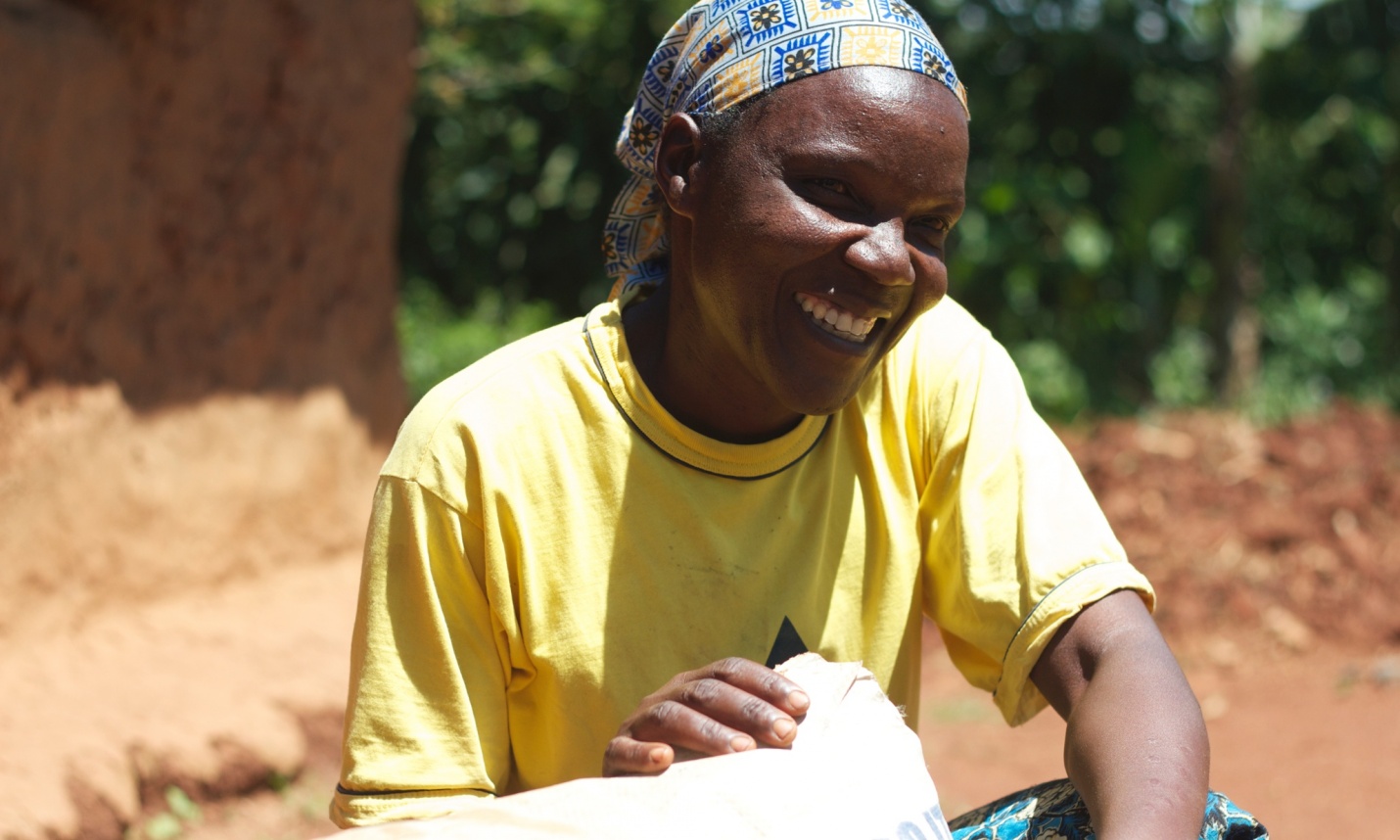 Beatrice
Alvitsa holds a bag of cement: higher millet yields are enabling her to
rebuild her home in Kenya. Photograph: Mark Anderson/The Guardian
Beatrice
Alvitsa holds a bag of cement: higher millet yields are enabling her to
rebuild her home in Kenya. Photograph: Mark Anderson/The Guardian
by Mark Anderson in Shimanyiro
Dotted along the narrow path that skirts the edge of Beatrice Alvitsa’s house in Shimanyiro, a green Kenyan valley near the border with Uganda, are dozens of millet plants, each protected by a carefully assembled fence made of sticks. “These keep the chickens and other animals out,” she says, bending down to mend a break in one of the fences. – See more at: http://farmlandgrab.org/post/view/24559-battle-to-feed-the-world-pits-small-farmers-against-big-agriculture#sthash.Blf4h6AU.dpuf
 Beatrice
Alvitsa holds a bag of cement: higher millet yields are enabling her to
rebuild her home in Kenya. Photograph: Mark Anderson/The Guardian
Beatrice
Alvitsa holds a bag of cement: higher millet yields are enabling her to
rebuild her home in Kenya. Photograph: Mark Anderson/The Guardian